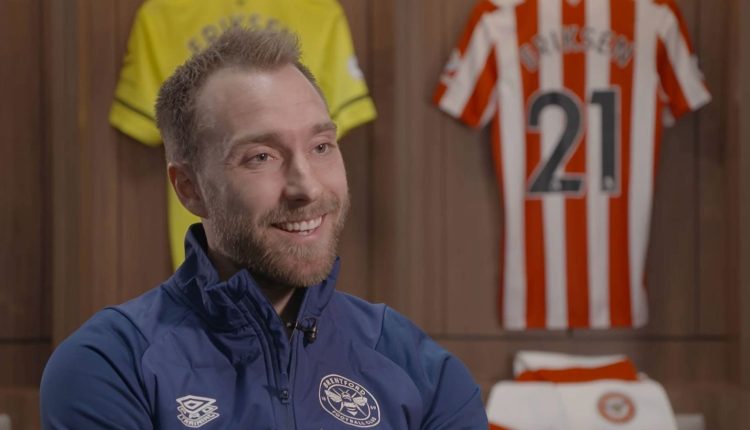Eriksen claims his heart will be the safest on the pitch
Christian Eriksen believes his heart will be the safest on the pitch with an Implantable Cardioverter Defibrillator (ICD) fitted to it.
Brentford midfielder Christian Eriksen has stated that his heart will be the safest on the pitch with an ICD fitted to it.
The 29-year-old is closing in on making a remarkable comeback less than a year after suffering a cardiac arrest at the European Championships playing for Denmark, thanks to the capabilities of modern science, after joining Brentford on a six-month contract until the summer.
Eriksen will be the first known Premier League player with an Implantable Cardioverter Defibrillator (ICD) fitted and the midfielder is confident the device, which responds to life-threatening rhythms and can shock to reset the heart-rate and prevent sudden cardiac arrest, will ensure there will not be a repeat of the incident last summer.
Speaking exclusively to Sky Sports News in a wide-ranging interview, Eriksen says his family are fully on board with his comeback, there are no limits to what he can do with ICD fitted, he thought of Brentford even before they called him, and that – although he won’t be available this weekend – his return is not that far away.
“I agree that this is an example of modern science,” he said from the dressing room at Brentford’s Community stadium. “I’d heard of an ICD before, but I’ve never known as much about it as I do now.
“In positive terms, now a lot people in the world know that if you have something and you get an ICD, it doesn’t stop your world from living. It depends on the diagnosis but, with this, you are more safe with this than anyone else.
“I spoke to Daley Blind (who plays for Ajax with an ICD). I’ve seen him a few times in Amsterdam since, and even in the first week in hospital I texted him from hospital asking ‘what can I do with this?’ He is the more famous example that it can be doable. But, for the common world, it’s more new. In hospital you hear that an ICD is more normal and it doesn’t stop you doing anything.
“It was pretty early in the hospital I was told that, with an ICD there are no limits. You just have to let it heal for a few months, and after you can do whatever you’re capable of. It was pretty quick that I wanted to go back but I didn’t want to do anything pushy.
“So I went to see some doctors and made a program for three or four months, which I have been following until the end of December – a lot of testing and training. Luckily it’s been going well. It’s been a long process but my mind started early to see if I can play again, and luckily I can.
“I didn’t have any doubts I could come back, because it was really a slow, controlled process. The tough part is you have to push yourself, because I’m not pushing anyone. No one is pushing me. It’s me pushing myself. Mentally that was the biggest challenge. Mentally I’m ready.”


